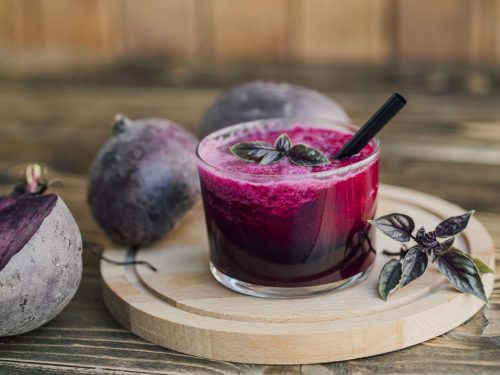Beetroot is a kind of vegetable that shows an excellent nutritional profile with plenty of essential vitamins, antioxidants, and minerals. They also provide unique bioactive compounds called “betalains”. It’s a beneficial element regarding a person’s health. Beets naturally contain a large portion of nitrates which the body converts into nitric oxide. This compound dilates the blood vessels and improves your blood flow, resulting in lower blood pressure.
So, there are many benefits of beetroot or beet juice compared to other healthy drinks. But in terms of kidneys, there are some side effects of beet juice that you need to be aware of or else you could damage your kidney functions.
In this article, we will dive into the side effects of beets on kidneys and answer whether it’s bad for your kidney or not. Also, we will cover some related FAQs that include how to use beetroots and take maximum advantage of them, so that your organs, especially kidneys, stay safe and active.
Contents
Side Effects of beet juice on kidney

Beets contain a high amount of oxalates, this may increase the chances of the development of kidney stones. This can occur if you have problems with your kidney. Now, how does this work?
Generally, if you consume oxalate then it combines with calcium and increases the concentration, as a result, your kidneys aren’t able to dispose of it quickly enough so it crystallizes and forms kidney stones.
So, eating foods rich in oxalate like beetroot can deliver a high risk of having kidney stones. Beet juices, beets, and beet leaves contain about 610 mg of oxalate per 100g cup. In the case of boiled beets, they contain 675 mg of oxalate.
If you have chronic kidney disease then beet juice isn’t good news for you. Because beetroot contains sodium, potassium, and phosphorus which prevent your kidneys from removing the excess from your body. Now, if these minerals remain in your blood then they can damage your kidneys even further.
Your kidneys won’t function properly like filtering out protein waste products that can concentrate in your vital organs.
So, to answer, is beet juice bad for your kidneys? In short, we can say if you have problems with your kidney or if you have chronic kidney disease then beetroot juice might not be such a good idea. As it increases the amount of oxalate and also contains potassium, sodium, and phosphorus. These are bad for your kidney (if it’s not well functioned).
But if you have a sound kidney then it’s okay to drink beet juice. In fact, drinking beetroot juice is quite good for your kidney’s health unless you are susceptible to oxalate-containing kidney stones.
Is too much beet juice harmful?
Beets contain a compound called betanin which provides the vegetable with its red pigment. Sometimes, people have difficulty breaking down this pigment. So, an excess amount of beet juice can make urine or stools appear red or pink. But it’s not that harmful to your body.
Though people with low blood pressure or currently taking blood pressure medication should take a limited amount of beetroot juice. Also, beet’s high levels of oxalates can cause kidney stones. So, in those cases try to avoid beet juice.
Is it good to drink beet juice every day?
According to a study in 2014, drinking 250 ml glass of beetroot juice per day may lower your blood pressure especially for people with hypertension. Though drinking beet juice daily doesn’t cause any serious side effects, the color of the urine may change because of its red pigment. So, you can drink beet juice daily without having any deliberate problem.
How much and when to drink beetroot juice?
The important aspects of beetroot juice are it plays an important role in opening the blood vessels, increases the flow of oxygen throughout the body, provides more energy, and makes you feel active. So, it’s advised to drink beetroot juice in the morning as it helps your sleep organs to wake up and give you a fresh start for the day.
Also, to maximize the effect of beet juice on athletic acts, it’s best practice to drink beetroot juice 2-3 hours before training or exercising.
Generally, eight ounces or two juiced beets three times a week would be perfect for your diet. Also, blend with eight ounces of sweet fruits like apple, carrot, or tangerine to enhance the test and nutrition.

Benefits of Red Beets
Red beets are packed with essential nutrients. Also, they are a great source of fiber, vitamin B9, manganese, iron, potassium, and vitamin C. Beetroot juice has been associated with numerous health benefits like lower blood pressure, improved blood flow, increased exercise performance, etc. So, they make a great part of your daily life and are good for athletes.
